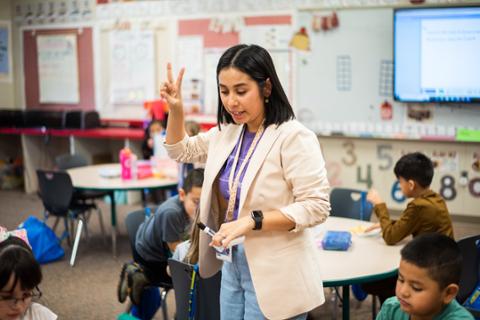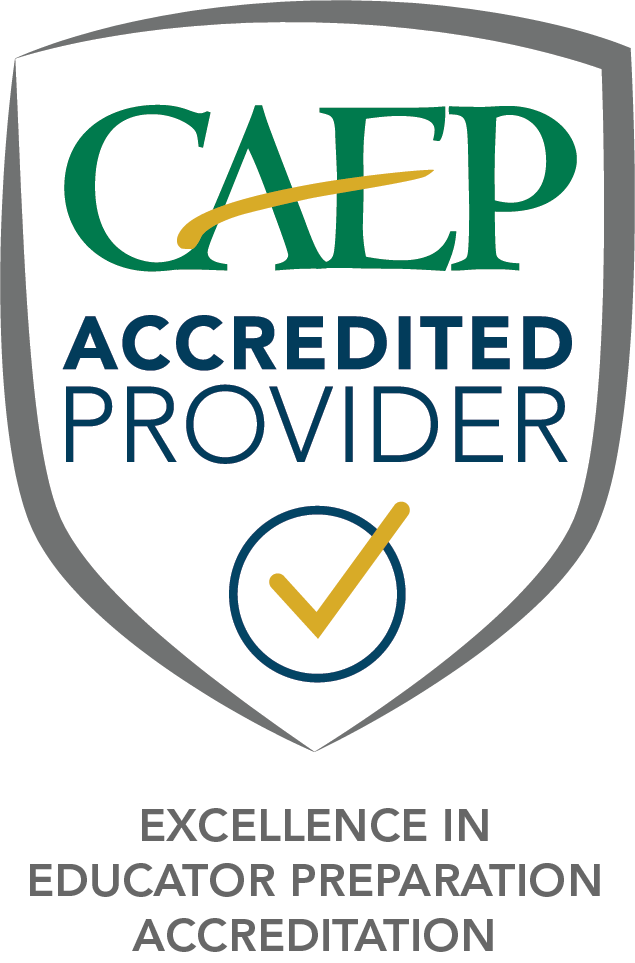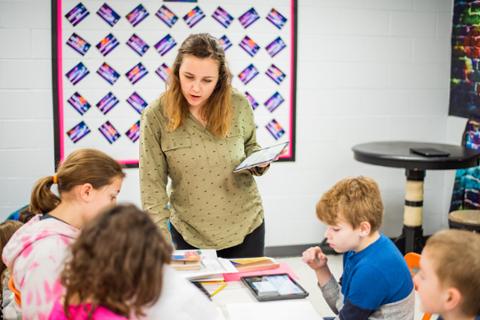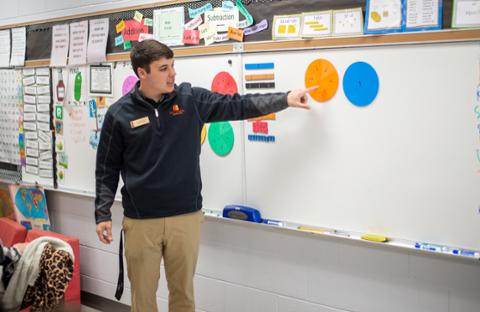Online Master's Degree in
Special Education Teaching

Enhance your special education knowledge and learn strategies to teach students with diverse learning needs.
Our Special Education Master's Degree offers a comprehensive curriculum designed to equip educators with the knowledge and skills needed to support students of all ability levels.
Through coursework, practicum experiences, and seminars, students explore effective instructional strategies and behavior management techniques to make a meaningful impact in inclusive educational settings.


Learn from seasoned educators and professionals who bring a wealth of real-world experience to the online classroom. Benefit from their guidance as you further explore your education.

Put theory into practice with hands-on experiences in classroom settings. Collaborate with local schools and educators to step into real classrooms, engage with students, and refine teaching skills.

Stand out in the competitive job market with a Special Education Teaching Master's degree. Pursue a variety of rewarding careers such as a Behavior or Transition Specialist.
Master's of Special Education Teaching Admission Requirements:
Admissions criteria for the Master’s Degree in Special Education Teaching will include the following:- The requirements for a general education license must be met before any special education endorsement can be granted.
- One practicum will be at the elementary level. The other will be completed at the secondary level.
- Characteristics courses (SPED 738 & SPED 852) are prerequisites for methods courses at their respective levels (SPED 779, SPED 780, and SPED 853).
- Special Education Praxis exams are required for full endorsement.
Unique Class Topics in the Special Education Teaching Master's
Our Special Education Master's Degree offers a comprehensive curriculum designed to equip educators with the knowledge and skills needed to support students with diverse learning needs. - Characteristics of Students with High-Incidence Learning Needs: Analyze and identify the unique characteristics and challenges faced by students with high-incidence learning needs, exploring strategies for effective support and intervention.
- Practicum I: High-Incidence Learning Needs: Apply theoretical knowledge in real-world settings through hands-on practicum experiences, working directly with students with high-incidence learning needs under the supervision of experienced educators.
- Teaching Elementary Students with High-Incidence Learning Needs: Develop and implement tailored instructional approaches to meet the diverse learning needs of elementary students with high-incidence disabilities, fostering their academic growth and social-emotional development.
- Teaching Secondary Students with High-Incidence Learning Needs: Design and deliver engaging and differentiated instruction for secondary students with high-incidence disabilities, equipping them with essential skills for academic success and transition to post-secondary life.
- Characteristics of Students with Low-Incidence Learning Needs: Explore the unique characteristics and educational requirements of students with low-incidence disabilities, examining effective instructional strategies and accommodations to support their learning.
- Teaching Students with Low-Incidence Learning Needs: Develop specialized instructional plans and interventions to address the complex needs of students with low-incidence disabilities, promoting their independence and participation in educational settings.
- Practicum/Low-Incidence Learning Needs: Gain hands-on experience working with students with low-incidence disabilities in authentic educational settings, applying evidence-based practices and collaborating with interdisciplinary teams to support student success.
- Behavior Analysis and Management: Apply principles of behavior analysis to understand and address challenging behaviors in students with disabilities, developing proactive strategies and interventions to create positive learning environments.
- Assessment in Special Education: Learn to administer, interpret, and utilize various assessment tools and techniques to gather data on student progress and inform instructional decision-making in special education contexts.
- Seminar in Special Education Law: Examine legal issues and policies affecting the rights and education of students with disabilities, exploring landmark court cases, legislation, and ethical considerations in special education practice.
- Literacy Development and Instruction (K-2): Explore the foundations of literacy acquisition and processing systems that support proficient reading and writing at the emergent, early, and transitional developmental levels, as well as instructional methods that consider educational neuroscience, evidence-based practices, and the needs of diverse learners.
- Leadership and Collaboration in Special Education: Develop leadership skills and strategies for effective collaboration with stakeholders in special education, advocating for inclusive practices and facilitating positive outcomes for students with disabilities.
Jobs of Education Special Education Teaching Master's Graduates
- Special Education Administrator: Serve in leadership roles within special education departments or programs, overseeing program development, compliance with state and federal regulations, and the provision of services to students with disabilities.
- Special Education Teacher: Work in public or private schools to provide specialized instruction and support to students with disabilities, adapting curriculum materials and instructional strategies to meet individual learning needs.
- Resource Teacher: Collaborate with classroom teachers to develop and implement individualized education plans (IEPs), provide support services, and facilitate inclusion for students with disabilities.
- Behavior Specialist: Design and implement behavior intervention plans (BIPs) to address challenging behaviors in students with disabilities, using evidence-based strategies to promote positive behavior and social-emotional development.